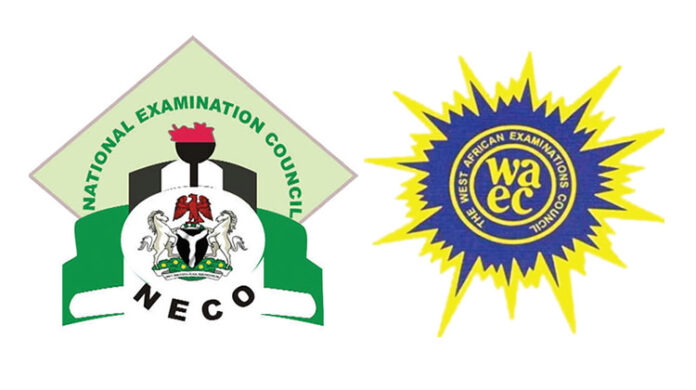The Nigeria Union of Teachers (NUT) has criticised the Federal Government’s recent decision to bar candidates under 18 from sitting for the West African Senior School Certificate Examination (WASSCE) and the National Examination Council (NECO) exams.
This move, however, has garnered support from the Academic Staff Union of Universities (ASUU).
In an interview with PUNCH, NUT Secretary-General Dr. Mike Ene expressed concern over the policy, arguing that societal changes, such as early enrollment in crèches due to economic pressures, make it unrealistic to impose strict age restrictions on education.
“The only way this policy could work is if it’s implemented from the foundation. Things have changed; due to economic pressures, parents enroll their children in crèches early, where they begin learning quickly. You can’t stop them from learning because the brain is structured to keep developing—once learning stops, the brain stagnates.”
He also highlighted the need to consider exceptional students who may be younger but are academically advanced, warning that the policy could lead to legal challenges.
Ene urged the government to reconsider the policy, describing it as poorly conceived and potentially harmful to the educational system.
Recall that during an appearance on Channels Television’s ‘Sunday Politics,’ the Minister of Education, Prof. Tahir Mamman, announced that the government had reinstated an age policy for secondary school leaving exams, setting the minimum age at 18.
This policy prohibits underage candidates from participating in the WASSCE and the Senior School Certificate Examination (SSCE), both of which are essential for progressing to tertiary education.
The policy also extends to the Unified Tertiary Matriculation Examination (UTME), administered by the Joint Admissions and Matriculation Board (JAMB), with the age limit for participation now set at 18.
Prof. Mamman clarified that this was not a new regulation, stating, “For the avoidance of doubt, this is not a new policy; this is a policy that has been there for a long time. Even if you calculate the number of years students are expected to spend in school, they should reach 17 and a half years old by the time they are ready for tertiary education.”

He emphasized that WAEC and NECO would no longer permit underage candidates to sit for their exams, reinforcing the importance of adhering to the requisite number of years in the education system.
The Minister outlined the expected timeline for students, noting that early education should last five years, with pupils beginning primary school at age six, progressing to junior secondary school at 12, and then advancing to senior secondary school at 15. After three years of senior secondary education, students would be eligible to enter university at 18.
Last month, during a meeting with JAMB and other education stakeholders, Mamman reiterated the government’s stance that the minimum age for UTME candidates should be set at 18.
However, following backlash from university stakeholders, who pointed out that many underage candidates had already passed the UTME and were preparing for university,the Minister temporarily reversed the directive, allowing 16-year-old candidates to proceed with their admissions for 2024. He stated that the policy would be fully enforced starting in 2025.
Despite the initial reversal, Mamman remained firm in his stance during his recent announcement, stating that the age restriction would be enforced moving forward.




